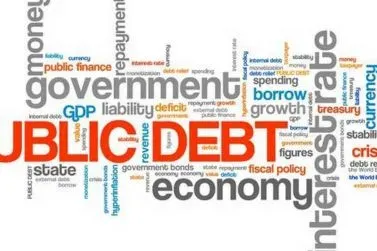The outbreak of the COVID-19 brought about long damaging health, economic and social impacts across the globe. While the entire world is still grappling with lockdowns and vaccinations wars, the international community, especially the International Financial Institutions (IFIs) such as the International Monetary Fund, World Bank, African Development Bank, G20, China, and Paris Club have recognised that developing countries should not be placed in a difficult choice between fighting COVID-19 while at the same time servicing their sovereign debt payments.
In March 2020, the Debt Service Suspension Initiative (DSSI) which aims at suspending debt repayments for low-income countries till the end of December 2021 was announced. Participating countries are expected to resume debt payments when the moratorium elapses. To compliment DSSI in November 2020 the G20 leaders approved a “Common Framework for Restructuring of Debtsbeyond the DSSI”for low-income countries. The G20 common framework is available for countries that sought debt relief beyond DSSI. African countries such as Ethiopia, Zambia, and Chad have applied for their debt treatment under the G20 Common Framework. Explicit terms and conditionalities of the workout are not yet clear but the restructuring process will be guided by non-legally binding MOUs negotiated with individual creditors. Projections are high that a record number of African countries already faced with record-high debt levels will request for inclusion.
The above new COVID-19 induced debt relief initiative are welcome. However, one of their major shortcomings is the lack of participation of private creditors. Private creditors, particularly bondholders have a long history of disrupting orderly debt restructurings. Without private creditors participation into DSSI and G20 CF, public resources are likely to be used to bail out private creditors rather than for post COVID-19 economic recovery.
Resulting to the COVID-19 outbreak the issue of debt relief and restructuring is now firmly on the global agenda. Low-income countries, especially those in Africa, need genuine debt restructuring mechanisms to resuscitate their economies and save the much-needed domestic resources towards fighting the pandemic and boost economic recovery. They need a global mechanism guided by UN principles. These include decision-making independent from creditors, independent assessment of debt sustainability and of the validity of individual claims, comprehensive treatment of each country’s debt stock in a single process, and inclusive participation of all stakeholders.
Debt restructuring should address the systemic debt vulnerabilities which include debt transparency, responsible lending and borrowing, and private creditors involvement. There is need for new legislation to reign in the activities of vulture funds. Given that majority of developing debtor countries’ international bonds are governed under the New York and London jurisdictions there is need for legal reforms in these global financial centers. In 2015 Belgium passed Anti-Vulture Laws which prevent creditors from disrupting payments made via Euroclear. Creditor governments’ parliaments have a responsibility to curtail litigation activities of vulture funds using their jurisdictions. The Belgian federal parliament is commended for instituting stringent legal measures against vulture funds.
African political leaders have raised their voices on the need for new debt restructuring mechanism as several African countries line up to restructure their debts under the G20 Common Framework. Countries like Chad, Ethiopia, Angola, Kenya, and others who are set to begin the restructure of their debt is a clear demonstration of the depth of this current debt crisis. The UNECA, IMF, and African Finance Ministers met on 5th February 2021 to discuss the debt crisis affecting the continent amidst the global covid-19 pandemic. During the meeting, Ghana’s Minister of Finance and Economic Planning Honorable Ken Ofori-Atta called for the extension of the DSSI and that it should benefit all eligible countries.
The call for reforms of the global debt and financial architecture, addressing illicit financial flows, and supporting initiatives that spur domestic resource mobilisation to fight the pandemic are much louder now than before. Citizens of the developing countries and their governments need to grab the opportunity presented by COVID-19 to demand new debt resolution mechanism that addresses the legality, legitimacy, and sustainability of debts. The world needs to ACT now!
Author: Tirivangani Mutazu, AFRODAD’s Senior Policy Analyst, Debt Management. You can give him feedback via [email protected]
***
*Image from the Kenya Wall street

